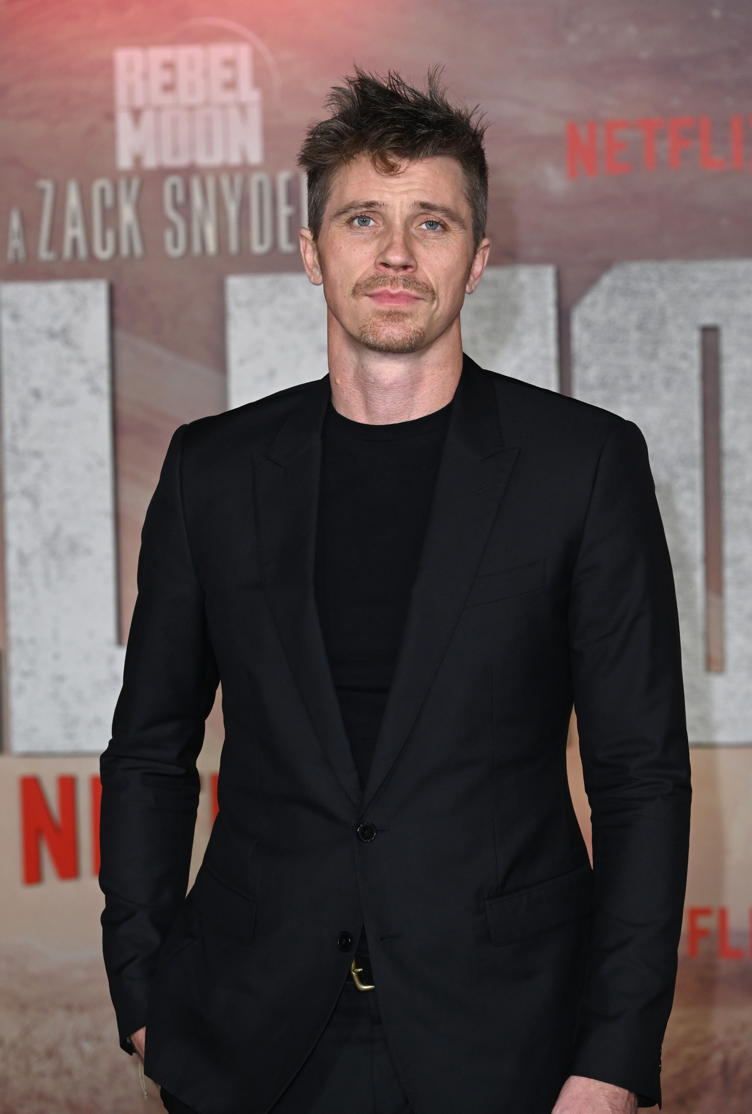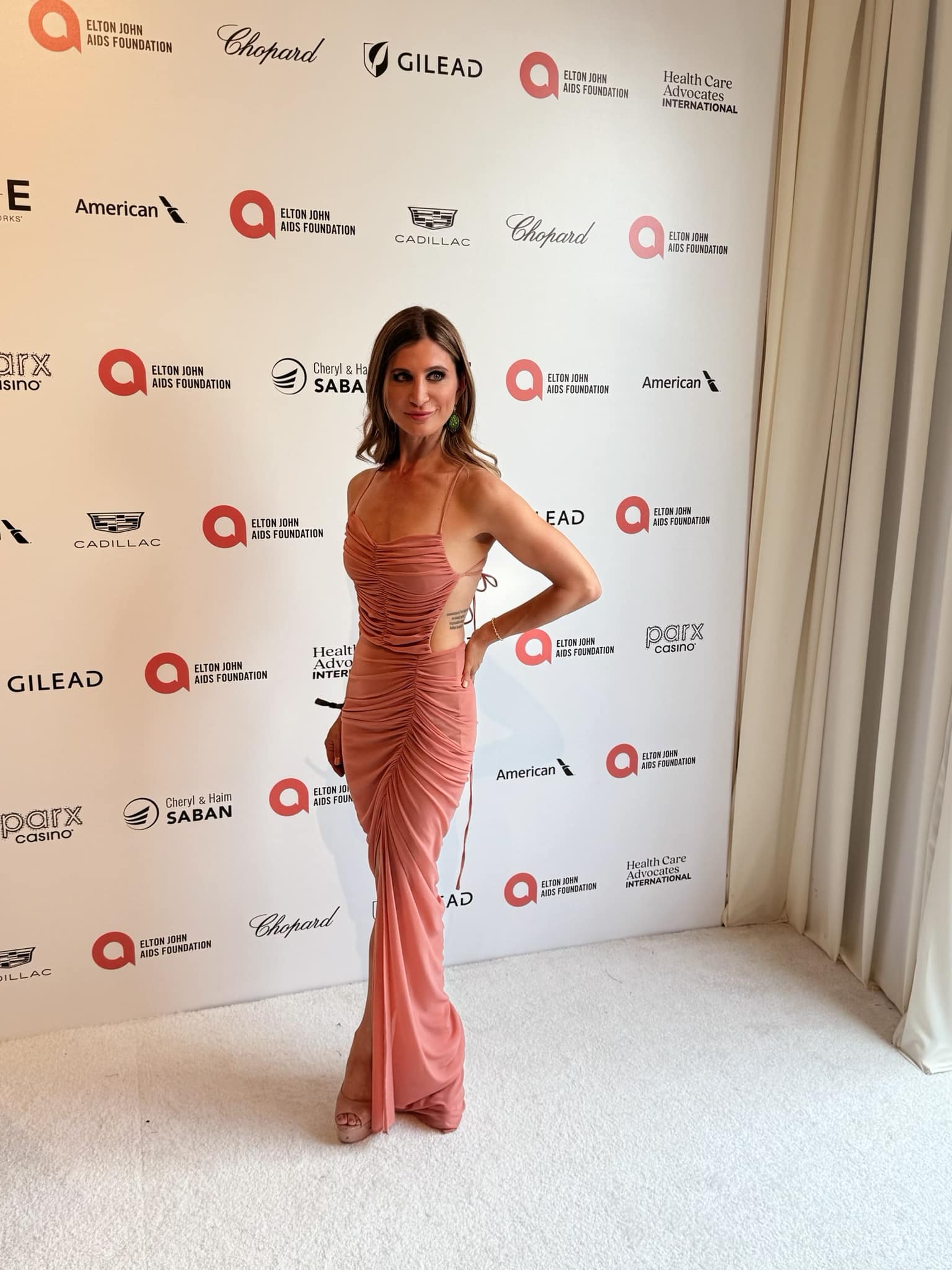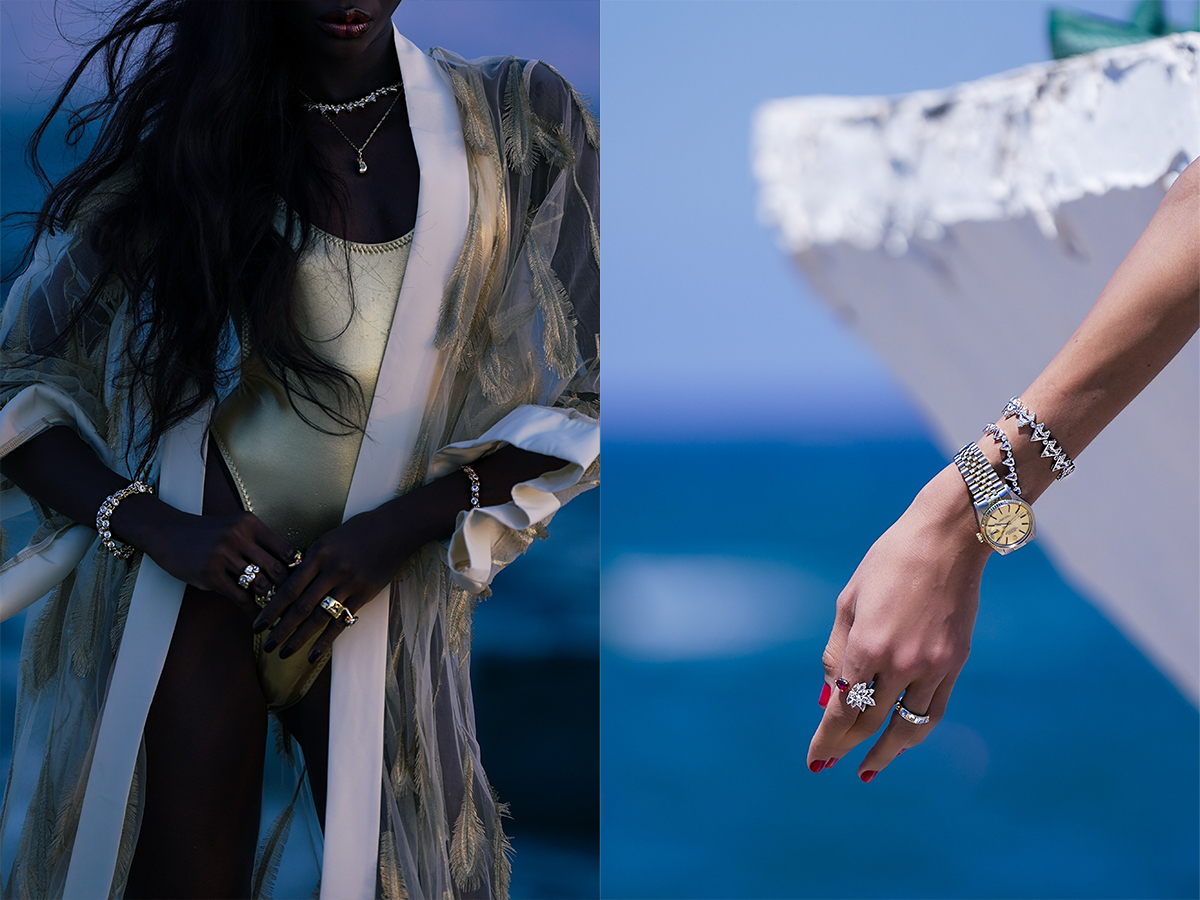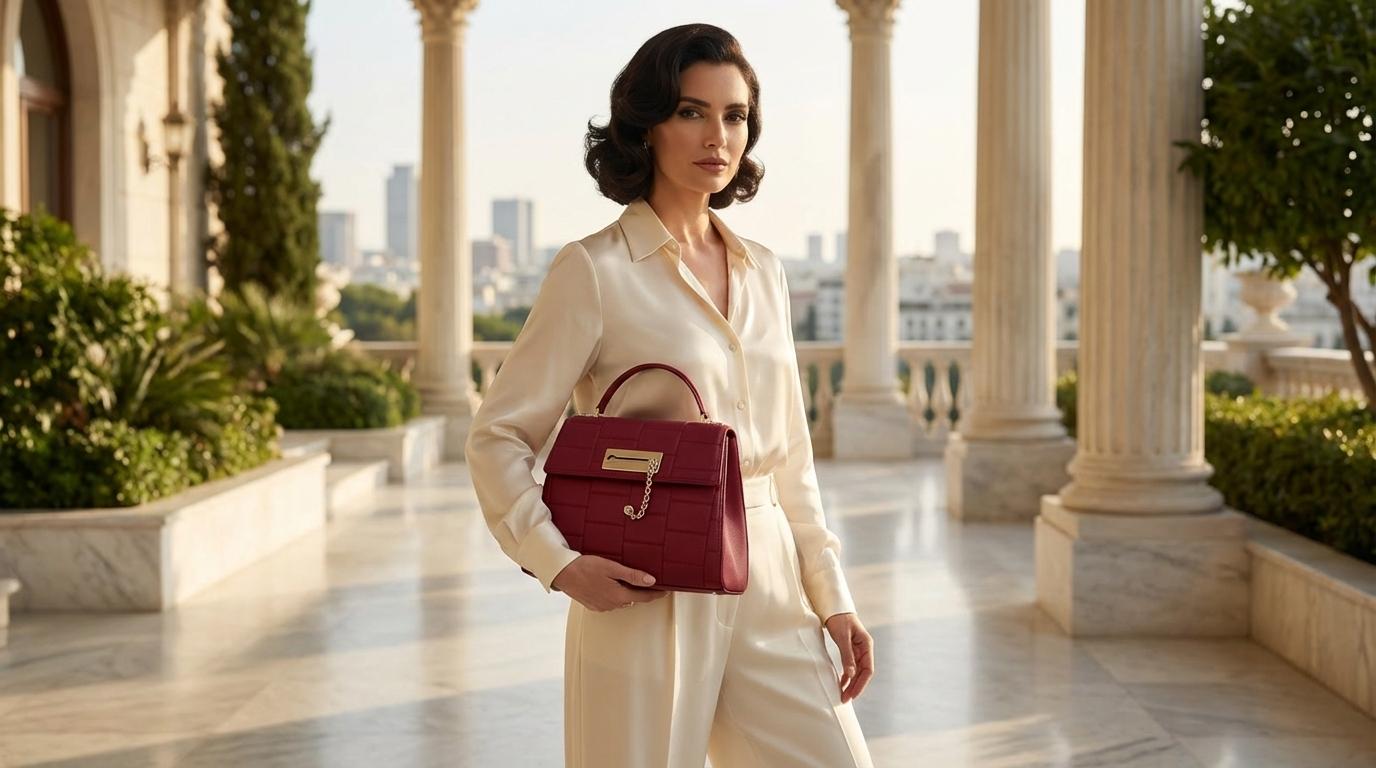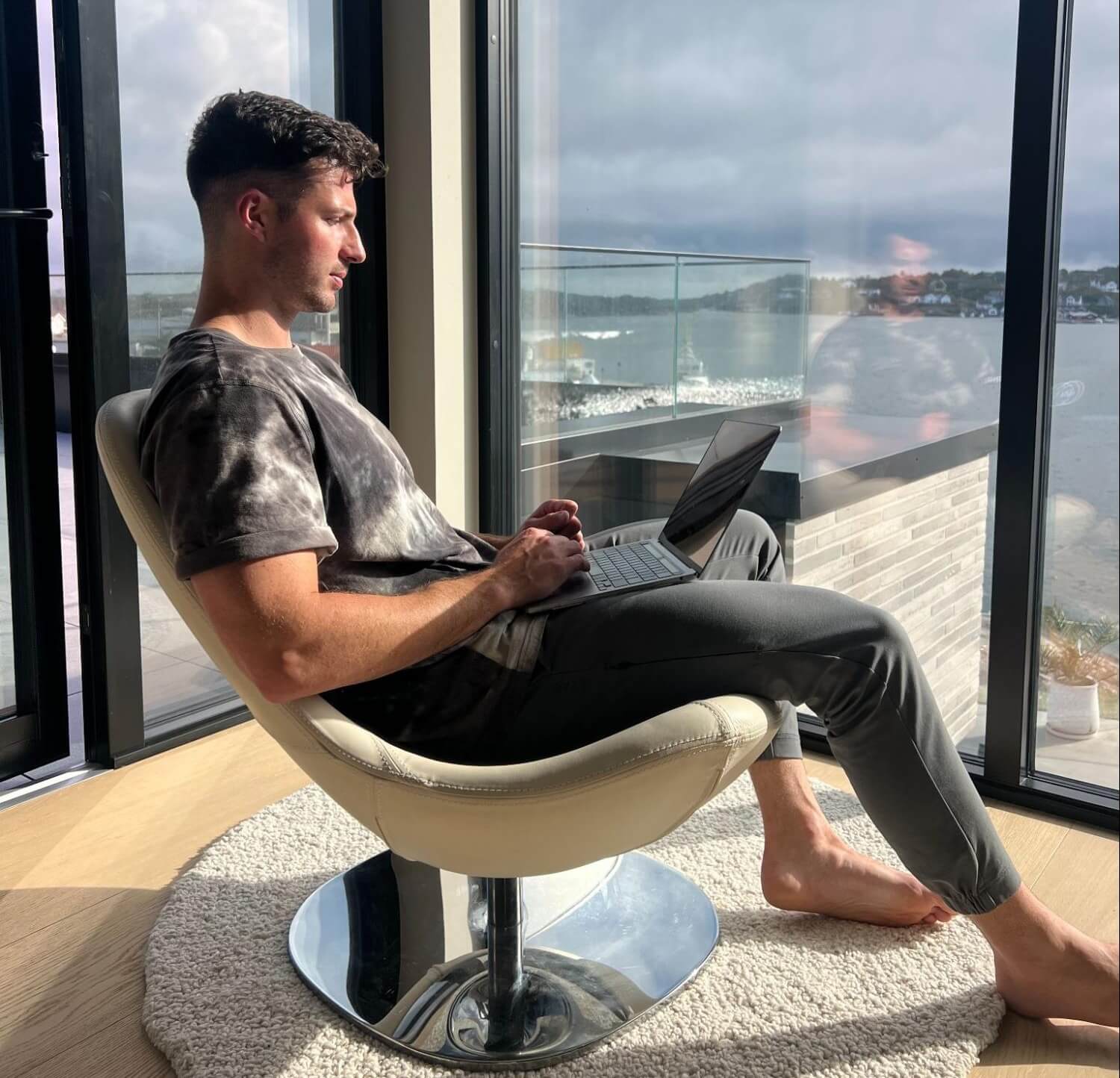Talking “Tulsa King” And Travel With Garrett Hedlund
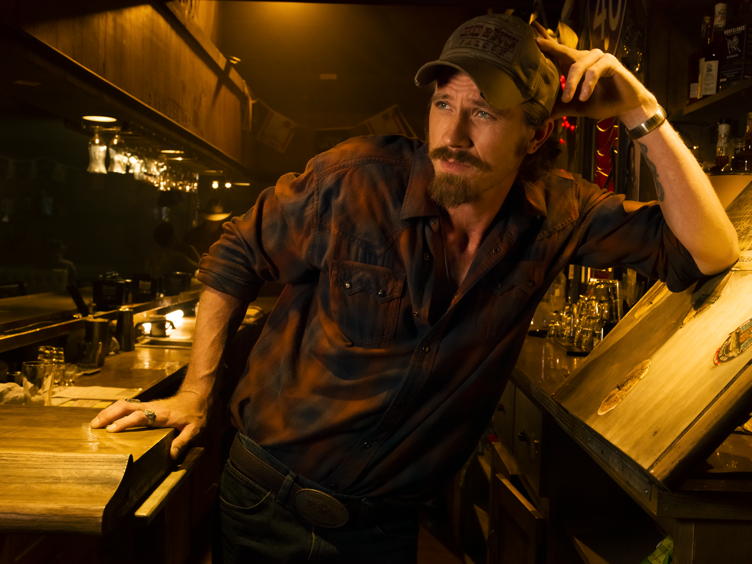
Garrett Hedlund is a busy man. When the star of Tulsa King and I finally get a chance to hop on a Zoom, he’s been bouncing all around the world for some time (including Atlanta, where Tulsa King was actually filmed), and, currently, The Hamptons, where he’s spending a few days before shooting his next project.
Hedlund has had a busy career, to be fair, which he kickstarted at just 18 years old in the film Troy, alongside Brad Pitt, Eric Bana, Orlando Bloom, and Diane Kruger. Other films include Walter Salles’ On the Road; Ang Lee’s Billy Lynn’s Long Halftime Walk; William Monahan’s Mojave; Angelina Jolie‘s Unbroken; Inside Llewyn Davis; Lullaby; Four Brothers; Friday Night Lights; Country Strong; and, of course, Tron. Most recently, he starred in The Tutor, Desperation Road, and The Absence of Eden.
The reason for today’s Zoom is Taylor Sheridan‘s Tulsa King, the second season of which will premiere September 15. In the Paramount+ series, Hedlund reprises his role as Mitch Keller, an Oklahoma native and former bull rider who retired prematurely after injuries led to addiction. He’s a major player in Dwight Manfredi’s (played by Sylvester Stallone) crime gang. The second series follows Dwight’s journey as he continues to form his criminal empire in Tulsa. In the new season, Dwight and his crew will face threats from the Kansas City mob and a local businessman, while also trying to keep their family and crew safe. It will also feature a cameo from country star Jelly Roll, whose song “Get By” appears in the official trailer — and, perhaps, perhaps, perhaps — some crooning from Hedlund himself, which isn’t a total shock given that he has previously recorded music for several of his films (and even released his debut single, “The Road,” in January).
Here, we talk Tulsa King, travel, and the luxury of… choice.
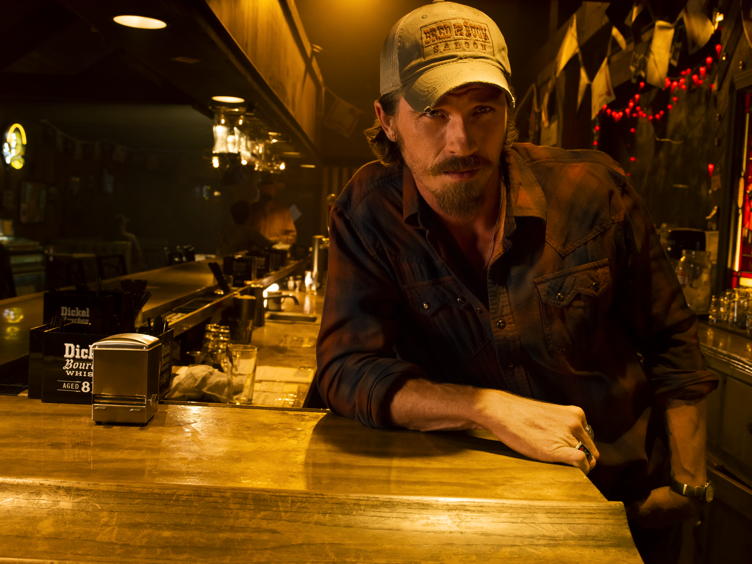
What appealed to you about Tulsa King initially, and how has your character evolved from season 1 to 2?
For me, I’d never done a TV show necessarily. I mean, I did this thing for [Steven] Soderbergh, The Mosaic, which which was kind of like an innovative thing that was going to be for iPads; it was a whole different technological thing. And so, I’d never really done a series. I got a call from from David Glasser and and from Studio 101 to to look at this, and I’ve crossed paths with Taylor Sheridan quite a few times. I’ve always wanted to work with him. Sly, I’ve known since I was 18, since before I even shot my first scene on Troy. We were both working out with Gunnar Peterson, and Sly was always just so great to me. I mean, he was he was always curious with what I was doing and how I was doing, where I was doing it, who I was working with, always had wonderful stories to tell and essentially kind of took me under his wing a little bit. He was supportive, and when this came my way, I just thought it was undeniable company. I mean, with Taylor Sheridan, with David Glasser, with Terence Winter from Boardwalk Empire and The Sopranos, with Sly.
I just thought it’d be something where we’d have a great time. It was gripping material, and it was the best of the best, making it was really a no-brainer. You know, the first season was really an introduction to a lot of characters. Which was what it was — and it really gathered a tremendous fan base. With Mitch, you slowly get to meet him. He’s working at this bar. It’s a little mysterious, this and that. And then then all of a sudden Sly character, Dwight, asks me to become his partner. We become partners to essentially formulate this sort of empire, this quintessential middle finger to his New York boys, and to build something huge in Oklahoma. So that’s that’s kind of the premise of the show. This season, though, it’s taken it to a whole different level, I think. For most series’s second seasons, it’s where shit hits the fan for all parties involved. And I think we’ve done that to a wonderful extent on this one.
So what can you reveal about season two?
Well. You know, for this season, I just think there’s there’s so many things that happen that are so unexpected that fans of the series are really just going to be hanging on the edge of their seat.
That wasn’t vague at all.
You know something something that’s a fact is that I’m in it. Sly’s in it. There’s there’s a vast amount of some badass, beautiful dialogue. Hilarious. There’s some glorious villains. There’s some glorious turf battles.
Is Bred to Buck going to become a casino?
I can tell you that. Absolutely. See, everybody thought old Mitch was just some bartender, but there were much bigger plans for Mitch. They subtly sort of bring him in. His establishment has now become their den of conniving and configuring ways to expand and and destruct everything around it. Yeah. It’s going to be a casino and a live band venue.
So, that means you’re going to be performing?
There are some performances. A band yet in an intimate way.
Will you be using this as a way of bringing actual country bands to play?
There might be a form of that in this season. But for me, getting up there and playing in it, it was something that about halfway through the first season, Sly said, ‘Why don’t you play some music in this? I think Mitch should do this.’ Eventually I just said, fuck it. And we did it. And then we kept doing it.
But that’s like one of your major things. You’re marrying your two great loves: acting and music.
Absolutely. That’s it for me. I mean, for the last 10 years, every film that I’ve been a part of is has asked me to contribute music or write a song for it, this and that. And so it’s kind of been a wonderful thing. What was keeping me from doing it, I think, was just was fear, because I’d watched so many people do this crossover thing. And then one of the two focuses within creativity in their life sort of diminished. And I didn’t want that to happen. And then I just sort of said, ‘screw it.’ And I put it out because it was so fulfilling to me. Ever since I did Country Strong, I’ve done so many other films involving music and have worked with so many other amazing producers and songwriters and artists and musicians. During our hotel time, in between shoot days, was always writing songs, having picking parties and jamming and stuff like that. And eventually the songs started piling up, and then I felt like it was going to be some sort of disservice if I didn’t just kind of start sneaking them out there.
So is there going to be an album coming out of this?
There will be, eventually. Yeah.
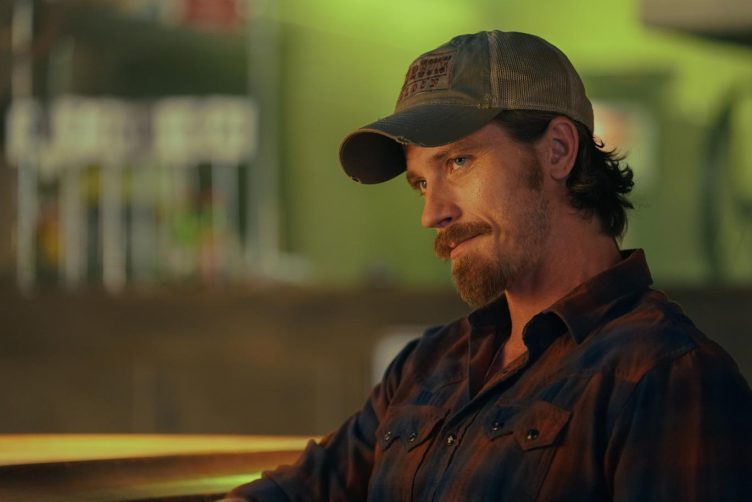
Tell me more about this album.
I’ll tell you more when the time comes. It was initially going to be planned for last year. I mean, we’ve still just been acquiring songs. My hands have been a little bit tied, but we’ll get it out there. But also, I’m in no rush. We’ve got some wonderful ones lined up and so and we’ll continue to keep adding to that.
When you were shooting [an upcoming film in Iraq], did you do a lot of songwriting because you couldn’t really go adventuring so much out there?
Yeah, you know, I’d hoped to have done more. I did buy a guitar at a little music shop somewhere around the centrum of Irbil in the Kurdistan region. We played in the trailer, and in the hotel, but I didn’t do too much writing. I did a lot of other writing, a lot of journaling, a lot of that sort of stuff. I mean, it was quite eventful in Kurdistan.
Journaling. Interesting. What kind of stuff do you journal?
I never really admitted that it was any form of journaling before. I just write things down whether it be gratitudes, whether it be sort of daily events where I’m at geographically, psychologically, where I’m heading, where I’m coming from, yada yada, little events that I think are colorful. I’ve always done it, ever since creative writing in high school.
Okay, so you’re writing songs, you’re writing gratitudes, and it’s kind of like a diary in some ways. Or not really?
Yeah, absolutely. Even though, you know, my my high school creative writing teacher, I told her never to keep a diary because if found, somebody would know all your secrets. She’d listen to me, and told me she had stopped keeping it. And here I am, writing absolutely everything down.
So, you have a few other projects coming up besides Tulsa King. Like Baron’s Cove.
No, the the Iraq one, I think is still untitled at this point. But I’ve been signed on to it probably since around 2006 or 2007. My dear pal Paxton Winters directed it. Ever since we met back then, we became the best of friends. He was always a constant inspiration of just just soaking up the nectar of life. I mean, he was living in Istanbul at that time. He’d done a 16-month journey of the Silk Road from China with with two camels and three Turks. He lived in Rio, had a place in the favela, did a film — a story that he created about favela life. I mean, there was just no end to the journeys that he would go on. He. He spent a lot of time in the Amazon supporting the indigenous tribes, the preservation of the indigenous tribes. And I’ve always tried to join him on those trips. So finally, this film had had come back to fruition and they granted access for us to be able to shoot in Iraq. It’s a story kind of about right around the invasion time.
It’s not a true story, but it seems as such. It’s very unique. It is a war story, and it sort of turns into a road journey, and it’s kind of like a perspective awareness piece that really grants you compassion towards those that you seemingly thought were complete nemeses at that time. And, I mean, it really shines light on just one particular Iraqi family’s life. I happen to be a part of that. It was very unique. That journey was one of the most fulfilling journeys I’ve had while shooting, most fulfilling to the soul, which kind of says a lot. Barron’s Cove is going to premiere at the Hamptons Film Festival by an incredibly talented young writer director, Evan Kelman, who just really blew me away. I mean, with his talents on set, I hadn’t seen somebody be as composed and articulate and know exactly what he wants since working with Joe Kosinski [on Tron: Legacy]. And so, that says a lot.
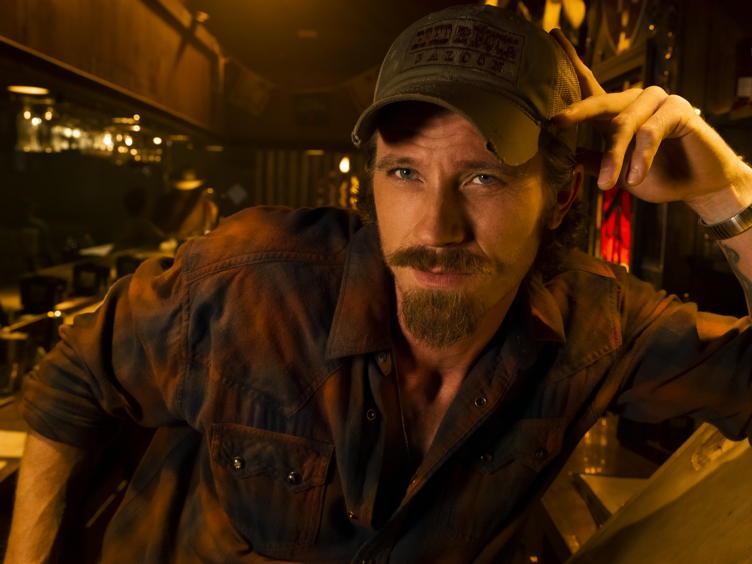
Do you learn something about yourself with every project?
I sure did on the Iraqi one. Before you do these, you always think you’re sort of the wisest version of yourself going into it. But by the time I came back, it was just really interesting to see that. I mean, I could so honestly confess that I was coming back a wiser man, a more compassionate man, a more aware man, a better father, son, brother, friend than I ever was going over there. And you know, it just really evoked just a lot of magic all around, through the journey, through the people I met, through the hearts that touched mine. It was extreme. You would hope it’s that experience on every film. Unfortunately it’s not, but this one was in tremendous ways.
You mentioned your friend going on these journeys around the world, which you joined him on. That’s pretty wild. Does that influence any of your project choices, the desire to travel?
There’s a project that we were just about to start at the beginning of September that was going to take place in Antarctica. And I was very excited, we couldn’t make its window to be able to get all of Antarctica shot up before it’s it’s essentially closed off, and so better luck next year for it. But yeah, it was it was definitely going to be a glorious kind of far fetched dream come true. To say that I spent the better half of the beginning of the year in Iraq shooting and making movies, and then spent the latter part in Antarctica would have been amazing. But yeah, sadly that one is going to be delayed for a bit. But in speaking about the other ones that profoundly influenced my soul, as a person, as an artist, was really the journey that we had when we were making On the Road with Walter Sellers directing. I’d been attached to it for two years prior to us shooting the film, three years or so during that prep period. I mean, I was doing road trips all across the States and prep driving wherever, writing to Walter, every sort of debaucherous sort of holy story I could think of throughout the nights and the mornings, yada, yada. But when we shot that, we started in Montreal. We flew to Sao Paulo. We went and shot in Bariloche, up to New Orleans, over to Arizona, down to Mexico City, Puebla, Tehuacan, up to Calgary, back over to Montreal. Then we finished in San Francisco the same day that I had to fly back and do the Tron premiere, and then two days later, the Country Strong premiere. And then Walter and I took the Hudson Hornet and drove from Harlem to LA and shot America. When an experience can be that visceral and involved and connected, it’s a gift, because not only is it putting stamps on your passport, but it’s giving you this, this great sense of really being able to survive all the elements and extremes in various parts of the world. That’s something that’s quite valuable as well.
One hundred percent. Also, it doesn’t actually sound exhausting to me. It sounds so exciting, but you probably slept for quite a long time after that when you were done with that schedule.
You come back sort of wired and you’re like, ‘all right.’ My whole thing back then was as long as I got like a day on my couch, I’d be good. At the time, I lived in Silver Lake. If I got back to the couch, it would take me about three days until I’d become sort of be fidgety and say, ‘all right, I’m ready, let’s go again.’ So no, you come back exhilarated from the journey and then you just want something as comparative as it, as parallel.
Sounds like you’re still doing that now, though, with all of your global travels.
Oh, well, I’ll always be an eternal yearner.
On that note, any last thoughts on Tulsa King?
I just love the team so much. I absolutely adore Sly. I think he’s unmatched, comparatively speaking, in terms of his work ethic. I mean, for him to show up on set every single day throughout this shoot — he’s there every single day — so much of this relies lies solely on his shoulders. He knows not only his dialogue, but everybody else’s. He knows where everything’s going. He has an idea of where every storyline should go. He’s writing a lot of it now, with those wonderful, creative ties that he has. He’s so involve din a way that some other cats really just sit back and coast or would do, at his point in life, at his age. But you can’t judge any of that by Sly’s cover because when he’s not on set sort of worrying about the angles and the shots and the lighting and the dialogue and then the improvisation on top of that, he’s being a wonderful father and husband. To work with him is a constant inspiration. I just fucking love Sly.
[Beyond Sly], being involved with Terence Winter, Taylor Sheridan, David Glasser, One on One Studios, Paramount — they’re all phenomenal. They’re a dream team. The cast is wonderful. Getting to work with everybody and everybody really just being jazzed about how their individual characters are blossoming for this second season is wonderful. I think it’s going to have a lot of people hanging on the edge of their seat.
Is it too preemptive to say there’s going to be a season three?
They finally they gave the go ahead I think after it aired like two episodes or something. Originally we were going to shoot season two last summer, but the strike halted everything. So you know, by fate and good fortune, we’re on set this summer. And it all happened and and you know, I know that everybody is feeling really good about how this season went, so there’s whispers. Very, very loud whispers. Almost a scream, really.
Last question for you: what to you is the greatest luxury in life and why?
Choice, and gratitude. I can’t have gratitude unless I choose to be present. Having the luxury of choice is monumental. I get to choose to be happy, choose to be helpful instead of hurtful. Choose to be compassionate. Aware. Wise. Dedicated. Committed. Courageous. Generous. Genuine. Kind. Loving. All due to choice, and presence. Mindful instead of mindless. I used to romanticize about mindlessness because I got it confused with a holy adventure, devoid restraints, when really, it’s just simply unconnected. Presence is connectivity. Choice… is deciding to open the door.
